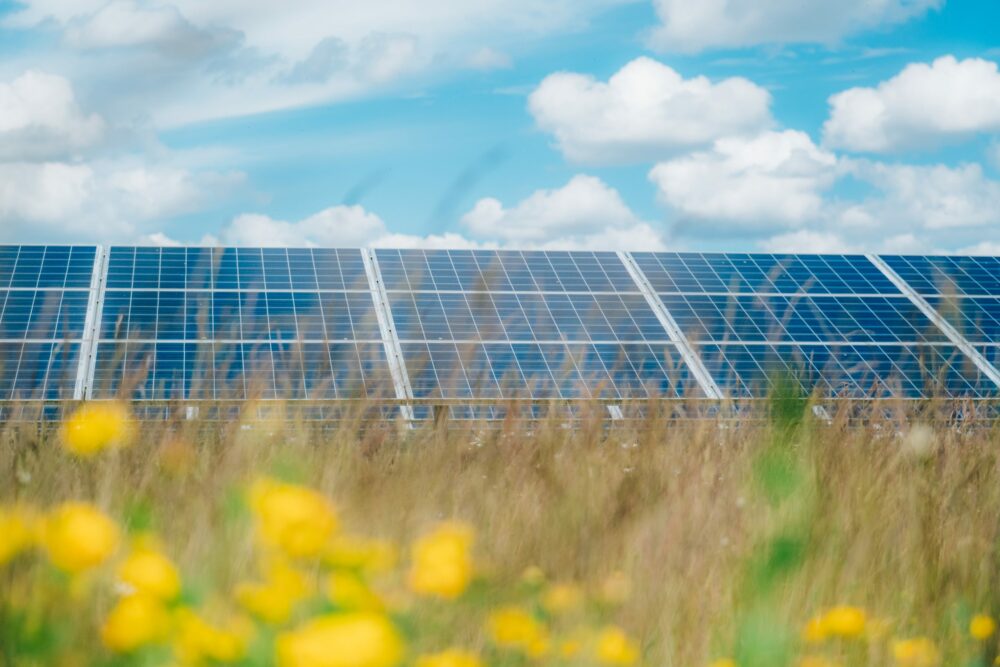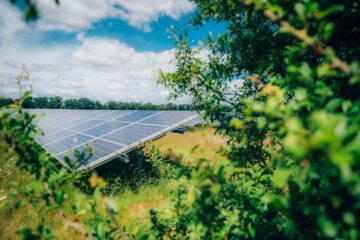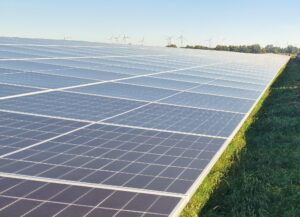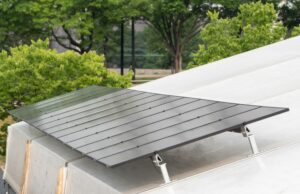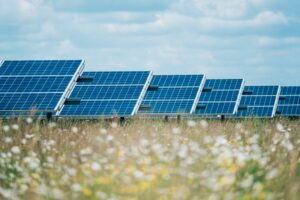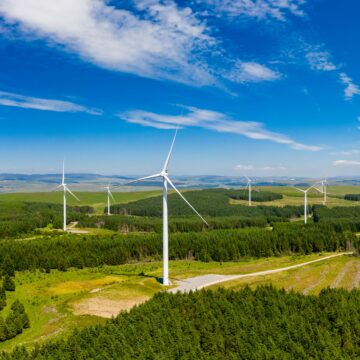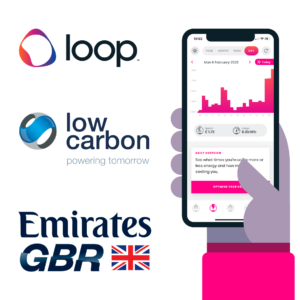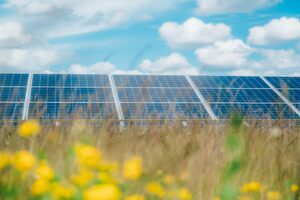
The projects will have the potential to provide clean, affordable power to more than 360,000 homes and avoid 308,000 tonnes of CO2e
Low Carbon has established an innovative finance facility with three leading commercial banks, NatWest, Lloyds Bank and AIB, as the renewable energy investment leader’s rapid growth trajectory continues.
The senior debt facility will enable the construction of large-scale renewable energy projects in the UK and the Netherlands. It is anticipated that the projects will result in the creation of at least 1GW of capacity, with the potential to provide clean, affordable power to more than 360,000 homes and avoid 308,000 tonnes of CO2e.
It is estimated that an initial £230 million will be injected into Low Carbon’s growing portfolio, which the company expects to immediately deploy to support the construction of 500MW of new solar PV capacity across 17 assets in the Netherlands and the UK. Further investment will follow shortly, as the facility’s accordion feature provides the ability to raise an additional £200m taking the total of solar PV capacity in construction to 1GW.
The announcement underscores the company’s credentials as an industry leader and comes just weeks after Low Carbon was recognised as one of the world’s top B Corporations for environmental impact.
The new finance facility is a testament to the confidence NatWest, Lloyds Bank and AIB have placed in Low Carbon and its proven ability to effectively direct capital at scale into renewable energy infrastructure. Through its landmark partnership with the US insurance giant, MassMutual, Low Carbon has set its sights on creating 20GW of new renewable energy capacity by 2030.
Commenting on the announcement, Founder and Chief Executive of Low Carbon Roy Bedlow, said: “We are delighted that three of the UK and Ireland’s leading banks have demonstrated a major endorsement of our business and its ambitions for expansion. The next decade is crucial to slowing the pace of climate change, and it is imperative that we rapidly deploy renewable energy at scale. The initial projects included in the finance facility will provide many in the UK and the Netherlands with clean, affordable energy in the years to come, and will help Low Carbon reach our strategic goals of net zero and 20GW of new renewable energy capacity by 2030”.
Juan Martin Alfonso, COO and CFO at Low Carbon added: “The finance facility includes innovative features that will increase the pace of capital deployment into renewables. It is a Gross Asset Value facility, and represents a departure from traditional project financing models, providing great flexibility to Low Carbon to develop and manage its international project pipeline. The multi-bank platform will enable us to add new assets into the facility and extend the tenor of the agreement as required. It also features an attractive pricing structure, bringing additional benefits to consumers at a crucial time.”
Lyudmil Banev, Director at NatWest commented: “NatWest is delighted to have supported Low Carbon’s inaugural solar platform financing as the cornerstone lender and hedge execution bank, further enabling the ongoing expansion of Low Carbon’s market leading development business into large-scale asset construction and operation. Delivering the innovative £230m day 1 +£200m accordion financing package involved close and open collaboration between the client, the banks and all advisors, and we are pleased that the resulting structure provides a flexible and scalable solution to enable Low Carbon’s ambitious immediate and medium term pipeline. The platform will provide a sizeable contribution to the UK and European energy transition and in turn support NatWest’s purpose, and our commitment to extend £100 billion of Climate and Sustainable Funding and Financing by the end of 2025”.
James Taylor, Head of Infrastructure & Project Finance at Lloyds Bank, commented: “Funding the development of renewable power generation is crucial to achieving UK’s Net Zero targets. In particular, low risk technologies such as solar PV will play a key role by accelerating the transition away from fossil fuels in a cost-effective manner. As part of Lloyds Bank’s Clean Growth Financing Initiative, we are proud to support Low Carbon in helping to deliver the UK’s carbon reduction targets.”
Ross Hamilton, Director at AIB Group (UK) plc, said: “Sustainability is a core tenet of our strategy at AIB. We are pleased to have completed the financing of this deal which now creates an environment for future expansion, as well as a greener future. We look forward to a long and fruitful relationship with Low Carbon and are excited to be in a position to assist the company’s scale into renewable energy infrastructure.”
Ends
Notes to editors: Chatham Financial, a financial risk advisory firm with a significant depth of experience globally in Project Finance, Renewables & Infrastructure projects, provided advice and assistance to Low Carbon relating to the transaction interest rate hedging requirements.
About Low Carbon
Low Carbon is a leading renewable energy investment and asset management company committed to the development and operation of renewable energy at scale. Low Carbon invests into both renewable energy developers and projects across a range of renewable energy technologies including solar PV, wind, energy storage, waste-to-energy and energy efficiency. Low Carbon, a certified B Corp, has a proven track record in the development, construction, financing and management of renewable energy assets and remains involved in the projects for the long term with a dedicated asset management team that manages assets on balance sheet and for third parties. With a significant international renewable energy pipeline in development, Low Carbon are well-positioned to capitalise on opportunities as the need for renewable energy and energy security increases.
- SEO Powered Content & PR Distribution. Get Amplified Today.
- Platoblockchain. Web3 Metaverse Intelligence. Knowledge Amplified. Access Here.
- Source: https://www.lowcarbon.com/news-feed/low-carbon-reaches-financial-close-on-a-230m-financing-facility-with-natwest-lloyds-bank-and-aib-to-construct-1gw-of-solar-pv-capacity/
- 000
- 1
- a
- ability
- accelerating
- across
- added
- Additional
- advice
- advisors
- advisory
- affordable
- After
- Agreement
- All
- ambitions
- ambitious
- and
- Announcement
- Anticipated
- asset
- asset management
- Assets
- Assistance
- attractive
- Balance
- Balance Sheet
- Bank
- Banks
- benefits
- between
- Billion
- Bringing
- business
- Capacity
- capital
- carbon
- Certified
- cfo
- change
- chief
- client
- Climate
- Climate change
- Close
- collaboration
- come
- commented
- commercial
- commitment
- committed
- company
- Company’s
- Completed
- confidence
- construct
- construction
- Consumers
- continues
- contribution
- coo
- Core
- Corp
- Corporations
- cost-effective
- creates
- Creating
- creation
- Credentials
- crucial
- day
- deal
- Debt
- decade
- dedicated
- delighted
- deliver
- delivering
- demonstrated
- deploy
- deployment
- depth
- develop
- developers
- Development
- direct
- Director
- effectively
- efficiency
- enable
- enabling
- energy
- energy projects
- Environment
- environmental
- established
- estimated
- Ether (ETH)
- European
- excited
- execution
- executive
- expansion
- expects
- experience
- extend
- Facility
- Feature
- Features
- finance
- financial
- financing
- Firm
- Flexibility
- flexible
- follow
- Forward
- fossil fuels
- founder
- from
- funding
- further
- future
- generation
- giant
- Globally
- Goals
- great
- gross
- Group
- Growing
- Growth
- Hamilton
- head
- hedge
- hedging
- help
- helping
- Homes
- HTTPS
- immediate
- immediately
- Impact
- imperative
- in
- Inaugural
- included
- includes
- Including
- Increase
- Increases
- industry
- Infrastructure
- initial
- Initiative
- innovative
- insurance
- interest
- INTEREST RATE
- International
- investment
- Invests
- involved
- IT
- Key
- landmark
- large-scale
- leader
- leading
- lender
- Lloyds
- Lloyds Bank
- Long
- Look
- Low
- major
- manage
- management
- Management Team
- manages
- manner
- many
- Market
- Martin
- medium
- million
- models
- more
- NatWest
- Need
- net
- Netherlands
- New
- next
- ONE
- ongoing
- open
- operation
- opportunities
- Pace
- package
- part
- particular
- parties
- Partnership
- pipeline
- platform
- plato
- Plato Data Intelligence
- PlatoData
- Play
- pleased
- portfolio
- position
- potential
- power
- pricing
- project
- projects
- proud
- proven
- provide
- provided
- provides
- providing
- purpose
- raise
- range
- rapid
- rapidly
- Rate
- reach
- Reaches
- recognised
- record
- relationship
- remains
- Renewable
- renewable energy
- Renewables
- represents
- required
- Requirements
- result
- resulting
- Risk
- Role
- Said
- scalable
- Scale
- security
- set
- Shortly
- Sights
- significant
- Slowing
- solar
- solution
- storage
- Strategic
- Strategy
- structure
- such
- support
- Supported
- sustainable
- taking
- targets
- team
- Technologies
- testament
- The
- the Netherlands
- The Projects
- the UK
- Third
- third parties
- three
- Through
- time
- to
- top
- Total
- track
- traditional
- trajectory
- transaction
- transition
- TURN
- Uk
- us
- value
- Weeks
- which
- will
- wind
- world’s
- years
- zephyrnet
- zero

